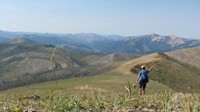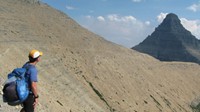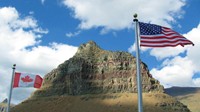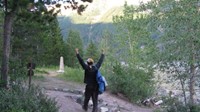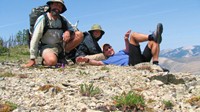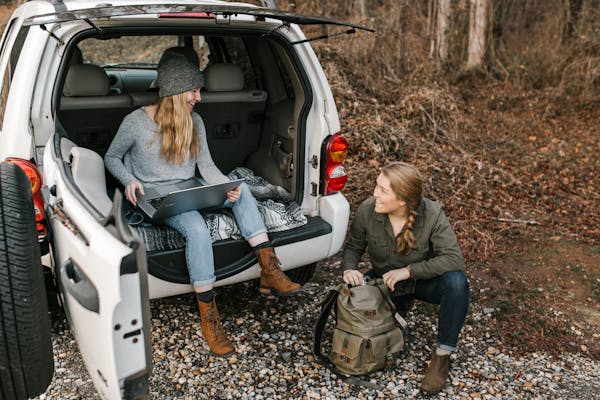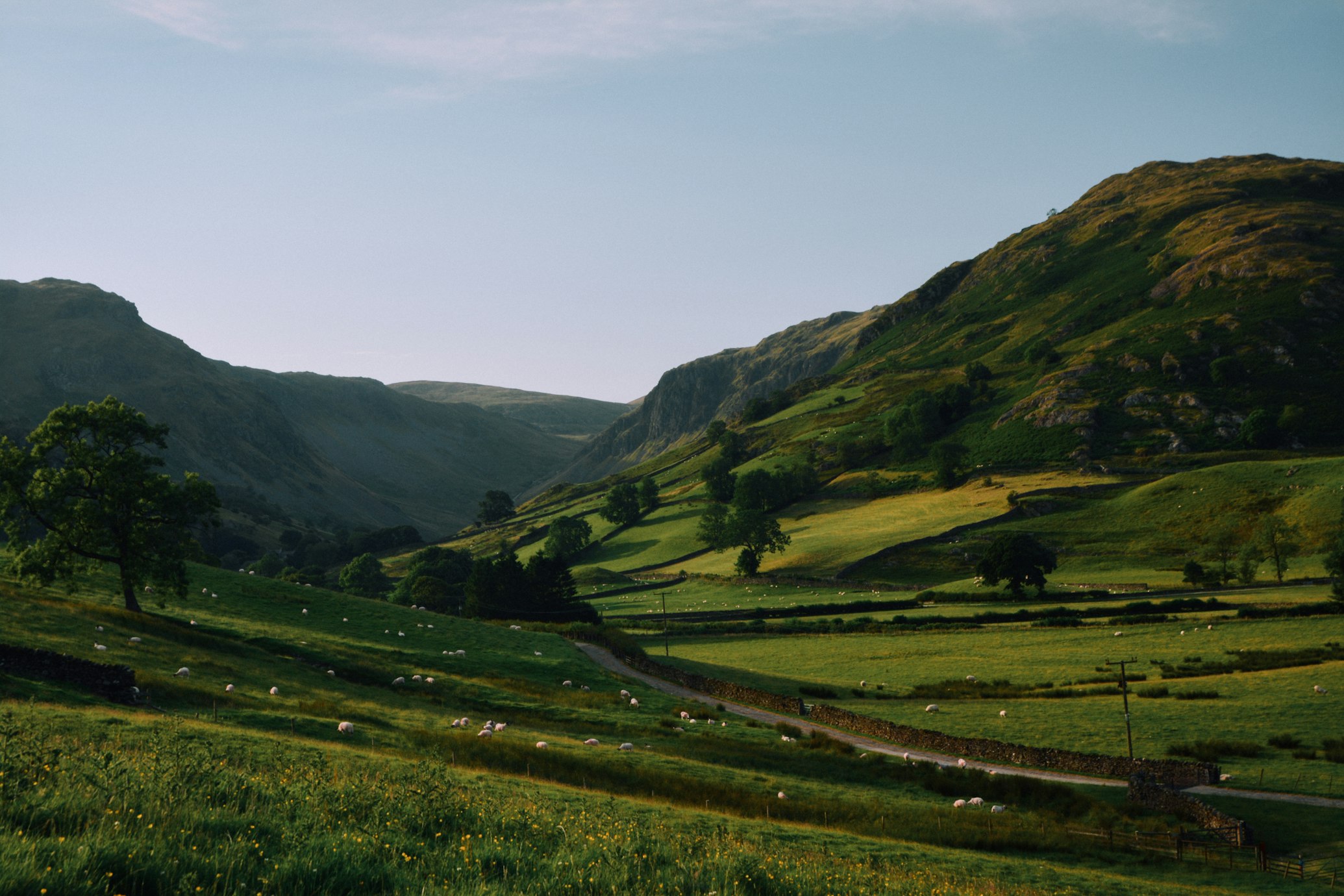One of the most magical parts of the CDT has been Glacier National Park, which has been in the news lately because scientists expect it will be, once again, glacier-free by 2020. Many times in history, there were no glaciers in Glacier National Park. For example, during the Thermal Maximum of the Cenozoic (about 40-55 million years ago), there were no glaciers anywhere on Earth, even in Antarctica. Back then, Antarctica had 6-foot-tall penguins and 100-foot-high conifer forests.
The glaciers today at Glacier National Park are a pathetic shadow of their glory days 20,000 years ago when they were 1,500 meters thick. These facts remind me to conclude my thoughts about climate change that I wrote about in my previous journal entry. Today I’ll focus on solutions.
What should we do about global warming?
Despite the long-term benefits of global warming, many people want to stop it anyway. As irrational as that is, I agree it’s a worthy effort. However, I’m not advocating major changes because I think it will make a significant difference. Our planet will undergo wild climatic changes in the future regardless of what we do. Why? Because it always has.
So why do anything, especially when T-Rex explains why global warming is good for the planet and the human race? Three reasons:
- Conservation: Conserving resources is just a good idea. Why recklessly blow through our nonrenewable fossil fuels? Who knows, they might serve a more practical purpose in 50 years than just filling up our gas-guzzling cars and making plastic. Since they’re nonrenewable, we should make an extra effort to encourage their conservation, even if they have nothing to do with climate change.
- Pollution: Lowering pollution is nice. Decreasing greenhouse gases usually means decreasing pollution, negative externality governments rarely try to recover. By fighting climate change, we’re indirectly fighting pollution. Although we must pollute, it would be good to charge the polluters, even if that means we all have to pay more for our goodies.
- Transition: Living through the transition period will suck. Whenever Earth’s climate has changed in the last billion years, there is a painful transition period that is just no fun. As the climate changes, species die on mass, and death gets the upper hand over life. Whether the planet warms or cools, ecosystems collapse and leave a vacuum. After many years, new life well adapted to the new conditions invades the space, new ecosystems form, and life flourishes again. Therefore, while we always end up with life filling the void that the transition period creates, it’s depressing to be around while the void gets created. If the temps warm up this century, we’ll be part of that unlucky generation that has to deal with the transition.
So what can we do?
Education won’t work
It’s sad to see so many well-meaning folks trying to make people change their behavior through education and "global warming awareness campaigns." They encourage folks to turn down the thermostat, drive a low-emission vehicle, and stop adding CO2 to the air by holding their breath.
At best, climate change education campaigns might make up 5% of the population change. Look at the freeways. Less than 10% of the vehicles get more than 40 miles per gallon. In the winter, I never walk into a house that makes me want to wear a jacket. Most people continue to take long showers and baths, except the French.
Education only works when the person learning gets a direct, obvious, and indisputable benefit. For example, AIDS education campaigns work because you could die if you don’t listen and change your behavior. If you don’t listen to the global warming scaremongers, you might have to unzip your jacket in the winter.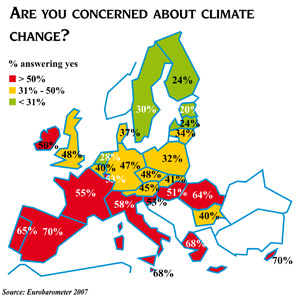
The education campaigns about smoking, wearing a seat belt, and listening to Jessica Simpson too much were all effective because the individual gets a direct benefit. With climate change, the benefit is less obvious.
Why educating people about global warming might be a bad idea
While I was in Colorado, I imagined the conversations at Sunday brunch:
“Hey honey, it says here in the paper that global warming could raise the temperature by two degrees by 2050.”
“That’s it? It’s so damn cold here! Can’t we do anything to raise it some more? Let's add some more porch lights and leave them on all night.”
Folks in cold Montana might feel the same way:
“Dear, I just heard on the news that rising global temperatures could raise the sea levels a few inches.”
“Crap! I hoped it would go up a lot more so we’d have some oceanfront property! I’m going off to buy myself a Hummer!”
Notice the map that shows how Northern Europeans (who live in a cold climate) care far less about climate change and global warming than people in the warm Mediterranean.
San Francisco in 2050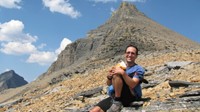
Before I left for the CDT, the front page of the San Francisco Chronicle showed what areas in Bay Area would flood by 2050 if global warming continues. Of course, all the wetlands in the Peninsula would go underwater (no humans live there), low parts of Vallejo (a minor suburb) would get flooded, and the SF Airport would have high water. In short, the only thing that matters to most locals is the airport, and we could protect that by spending a few billion dollars, which would be far less than all the massive changes we would have to make to slow down our CO2 emissions.
In other words, the newspaper tried to scare folks into action, but nothing changed in San Francisco. We're still all exhaling the same amount of dope we were doing last year.
If the oceanfront-dwelling, Green-Party-voting San Franciscans are unwilling to make significant changes voluntarily, imagine what the average person in Rawlins, Wyoming, will voluntarily do about climate change.
Moreover, having a Katrina-like disaster here and there makes little difference. Increased hurricanes affect a minority of the population, so most won’t care. I suspect Hurricane Katrina impacted less than 10% of the US population. It will take a while for enough farms to suffer poor crop yield and raise food prices for anyone to change their behavior voluntarily. Don't expect serious action until the Vail and Aspen ski resorts shut down for the winter due to low snowfall.
In conclusion, climate change has a marketing problem. It’s hard to get the average person excited about a three-degree temperature jump and a water level rise of a few centimeters. Most will conclude that it’s not worth disrupting your entire life to stop that from happening.
What’s worse, it might encourage some people to produce even more greenhouse gases because they wish their region would get warmer. It doesn’t surprise me that nearly everyone along the cold CDT still drives a monster-sized SUV or king-sized truck.
What environmentalists should do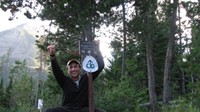
Climate change is not like AIDS or drunk driving, which has an immediate and personal solid impact; therefore, education and awareness campaigns are a waste of time. Fewer than 5% of the population will change their habits because they understand the greater good they are doing. The overwhelming majority will keep doing what we’re doing unless we suffer pain. Most people don’t change unless they have to (or get a significant benefit).
Hence, this is what you (or any environmentalist should do): lobby Congress to impose a stiff Greenhouse Gas Tax. It is the best way to change behavior. If you care about climate change, you should beg your politicians to create a Greenhouse Gas Tax that:
- Triples the price of petrol: It would encourage most people to switch to more economical and ecological vehicles. Few would idle their cars for more than 20 seconds. More would move closer to their job, bike to work, carpool, telecommute, and take public transport.
- Triples your electrical bill: You might switch off lights, not have the porch light on all night, get a low-power refrigerator, turn down the AC, unplug appliances you don’t use all the time, and use less hot water.
- Triples the cost of McDonald's hamburgers and milk. Cows emit methane, a greenhouse gas that is 21 times more potent than carbon dioxide, so the price of cow-related foods will go up; you'll have another reason besides high saturated fat to avoid them.
- Triple the cost of flying. Businesses and individuals might do more video teleconferencing if it costs $1,500 for a cheap round-trip ticket.
While you’re lobbying, ask Congress to repeal any child tax credit. Instead, ask Congress to impose an annual $5,000 tax per child. Each person has an impact, so discourage folks from reproducing if you want to reduce impact.
What’s the matter?
Don’t you like all these changes? I thought you were an environmentalist who wanted to stop global warming. Oh… not THAT badly!
Yup, most people are only willing to make small sacrifices, ones they can barely feel, like changing to compact fluorescent bulbs and recycling the newspaper.
However, for those who genuinely care about this debate, beg your politician to create a Greenhouse Gas Tax. It’s the most effective way to encourage everyone to change their behavior and to encourage innovation. Think of the innovation that such a tax would stir up:
- If petrol's price tripled, car manufacturers would create cars that got 100 mpg, and our dependence on unstable oil-rich regimes would go down.
- If your heating bill tripled, we’d make buildings with better insulation and better design that uses passive solar heating.
- If your electrical bill tripled because your power source is coal, you’d buy from a solar or wind-powered provider to save money, or you might let that nuclear-powered plant (which doesn’t emit greenhouse gases) get built in your backyard.
- If the price of hamburgers and milk tripled, we’d try to trap the methane that cows expel or become vegans who eat fake meat that tastes better than the real thing, thanks to innovations in the food industry. Or eat lab-grown meat.
- If the cost of flying tripled, high-speed railways (which produce far less CO2 than airplanes) would spring up.
- If it became more expensive to have children, the population growth would decrease, and maybe Al Gore wouldn't have had four children.
In short, such a tax would discourage people from having a high carbon footprint and encourage entrepreneurs to invent further ways to diminish greenhouse gases. A Greenhouse Gas Tax is the best way to reverse global warming. Forget education; money is a far more powerful incentive.
You could make it more likely to pass such a tax if you ask your representative to offset the tax increase with an income tax decrease to be revenue neutral. Of course, poor people will get hurt the most by a Greenhouse Gas Tax. But hey, what’s more important, the Earth or poor people?
Speaking of poor people, I calculated my Carbon Footprint and determined that I have about as much impact as some dude in Botswana. I don’t own a car or TV. I don’t have a heat or cooling bill (I live under a tarp). I don’t take airplanes; I walk across the country instead. Since I soak my food and never cook it, I have no gas bill; however, I produce a fair amount of gas in other ways...
I don’t expect anyone to follow my monastic way of life. On the contrary, I expect people to continue doing what they’re doing until the price of not changing becomes higher than the price of changing.
Why population growth matters
Some people foolishly think that population growth has little to do with the equation and that we shouldn’t try to limit it. These people usually have (or want) kids and want to feel good about their decision. Psychologists call such thinking cognitive dissonance. They hope we can “save the environment” primarily through conservation. They’re wrong.
Here’s why: let’s imagine the impossible—let’s imagine, through a variety of means, we somehow manage to get Americans to consume half the resources per capita that we consume today and that we can keep it that way forever. Of course, this is a ludicrous assumption since a trend line drawn from 1500 to 2007 would clearly show that we consume more and more resources per capita, but let’s make this wild assumption to indulge those who think conservation is enough to solve the problem.
What happens in 50 years, assuming our population growth continues at the present clip? The US population will have doubled. That means that after a Herculean effort to slash our per capita consumption in half, we’re left consuming the same amount of resources annually as we were using before the militant conservation campaign. That means we'd be gobbling energy at the same rate despite using half the water and half the energy. After 50 years, we would have made zero progress.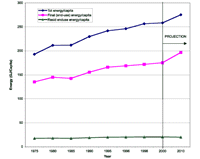
I’m not saying that we shouldn’t reproduce. On the contrary, that’s our duty as our species. Genesis 1:28 states: “God said unto [Adam and Eve], ‘Be fruitful, and multiply, and replenish the earth, and subdue it: and have dominion over the fish of the sea, and over the fowl of the air, and over every living thing that moveth upon the earth.”
If you’re agnostic or an atheist, substitute the word “God” with “DNA.” Indeed, our DNA compels our species to do just what that passage says. So we’ll continue to do what living things do and spread as far as we can. Just don’t expect our resource consumption to diminish while we expand exponentially, no matter how great a conservation campaign we establish.
That assumes that China, India, and other developing economies are sitting still. Those regions will produce more and more greenhouse gases until the pain of producing them is higher than the pain of not producing them.
Although we can't control them, we can increase our pain immediately with a Greenhouse Gas Tax. Of course, we won’t unless major environmental disasters happen. Don’t expect any significant changes until cities start to flood, farm production collapses, and ski resorts start to close down.
And if that fun stuff starts to happen, console yourself with what T. Rex said – that global warming is, in the end, probably a net good thing for both the planet and our species. We’ll suffer a bit in the transition.
I love that I can say that global warming is a good thing and if anyone says I’m a rotten person, I respond, “OK, Mr. Environmentalist, let’s compare your carbon footprint to mine.” That shuts people up.
Meanwhile, I will shut up and start hiking back to Mexico because I see a lynch mob coming after me right now. They're crazy Canadians chanting, "Stop global warming! We love our permafrost and tundra!"
Join the lively debate about this article on the WanderLearn forum. Also, you may enjoy this thought-provoking article in The Economist.
Trail update
August 2007: Whew! Now that I'm done with my rant, here's a quick update from the trail: I’m still alive and back in Idaho. I tagged the 
On my way to Canada, I missed the bulk of the Southbounders because 90% of them were taking the “Anaconda Cut Off” route while I took the official CDT route around Butte. However, I managed to catch the tail end of the Southbound train. For example, I ran into a dozen hikers, including Garlic Man, D, Buzz, Hawkeye, Sly, and others. I met the oldest CDT thru-hiker, a 63-year-old tall ex-military man named Flat Feet. His advice: “Don’t try thru-hike the CDT if you’re over 60.”
I met a few hiking pairs who are section hikers or flip-floppers, such as Rainman & Vicki, Gutsy & Dan, and Hmmmm & Basmati. Meeting Basmati was special because he is a great friend I met on the PCT. I hope to catch him before he gets to Yellowstone and off the trail.
Meanwhile, the trail has been hot and dry for the last month. Local Montanans claim it’s been the “driest and hottest” July on record. The upside is that I hardly set up my tarp in July, and waking up in the morning was easy since it is not butt-ass cold. The downside is that many wildfires have forced me to invent new ways through the Bob Marshall Wilderness. I confess that I illegally sneaked through a closed trail to see the Chinese Wall—a dramatic vertical rock wall that goes on for miles. There were no Chinese there, but under the Chinese Wall, someone scribbled “Made in the USA.”

